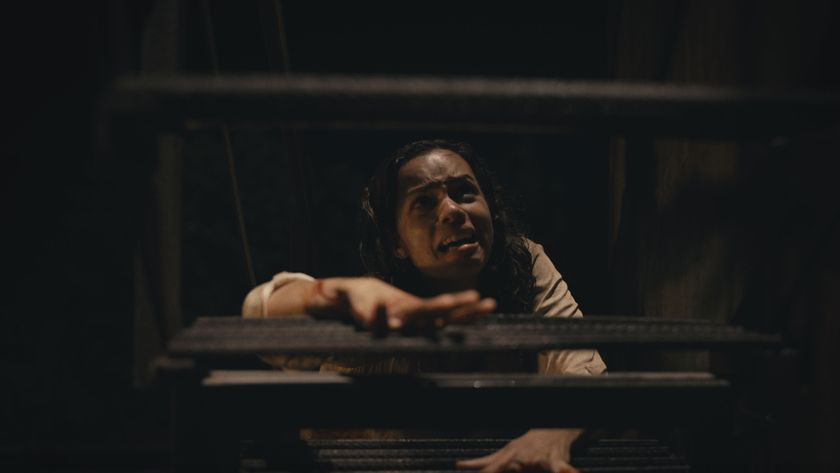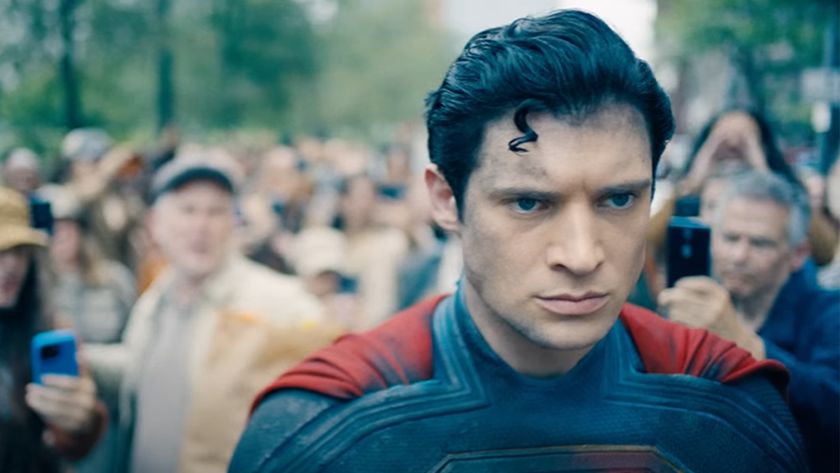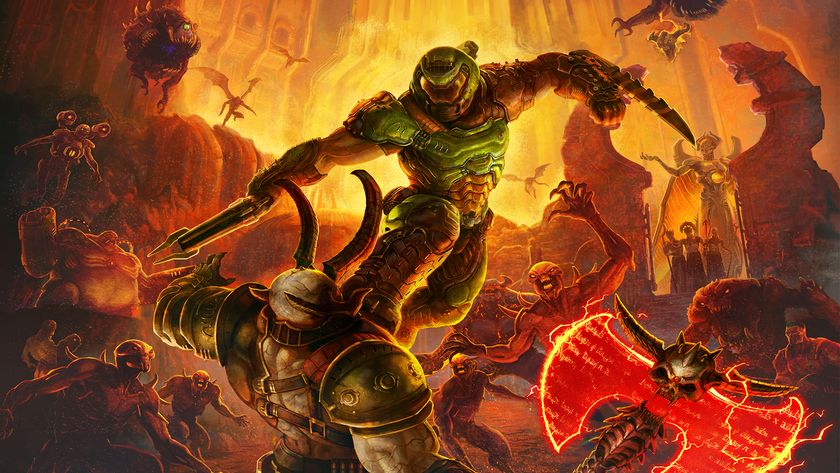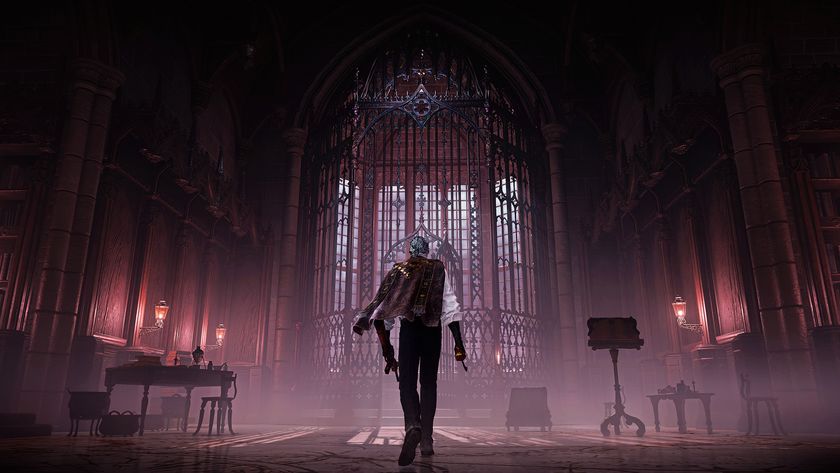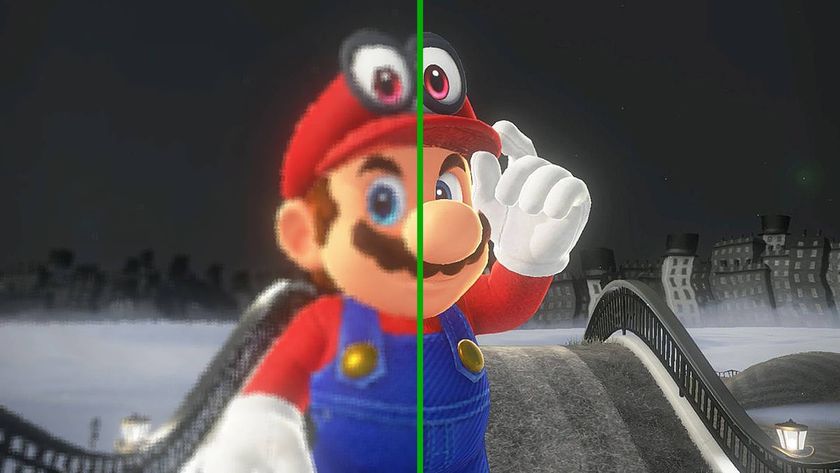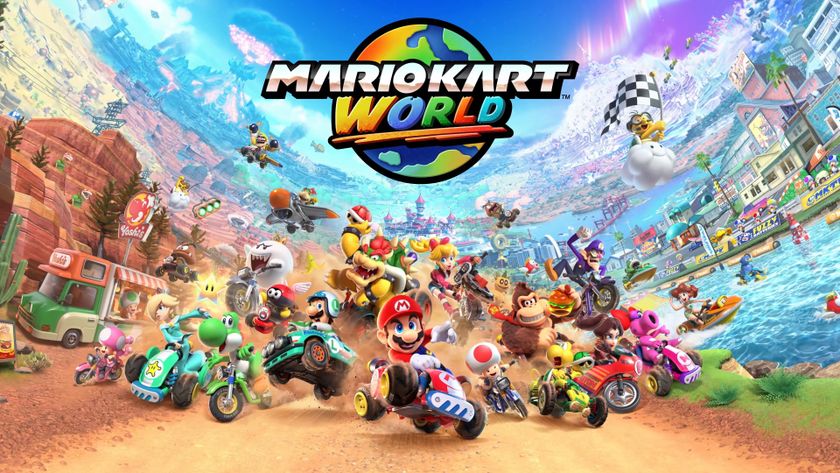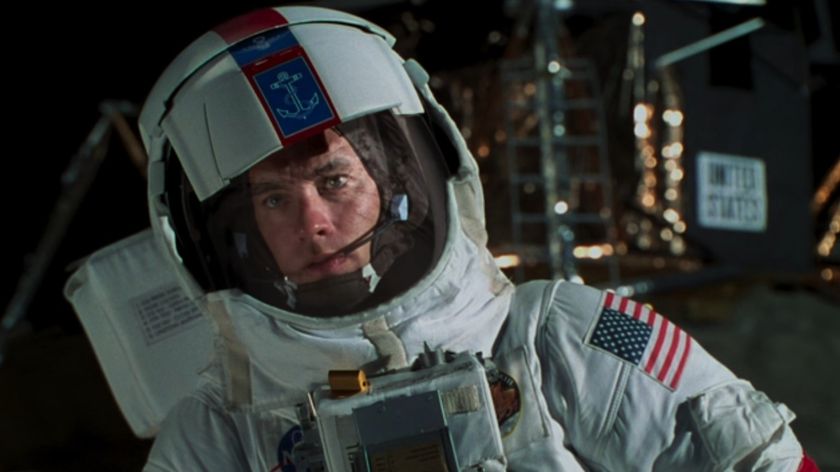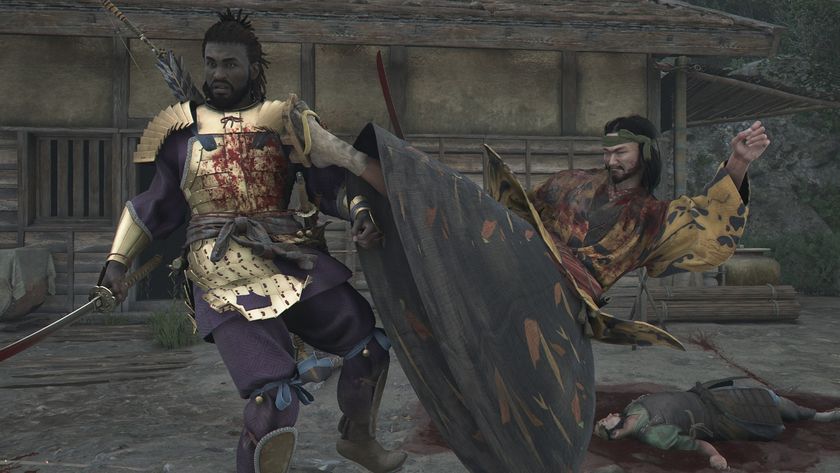15 Most Hated Cannes Films
Tough crowd
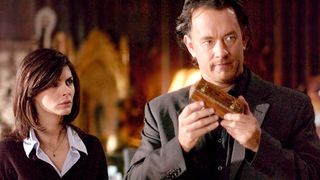
The Da Vinci Code (2006)
The Film: Ron Howard serves up a passable adaptation of Dan Brown's absurdly popular thriller, ploughing through the labyrinthine plot with confidence, but no real verve. Ian McKellen brings some life to proceedings as an ambiguous Grail hunter, but Tom Hanks is on autopilot here, as is Audrey Tautou as his largely redundant sidekick.
The Reaction: A glossy Hollywood adaptation of a disposable airport novel was always going to be in the crosshairs at Cannes, and so it proved, with a number of walkouts to accompany some distinctly lukewarm reviews. Perhaps worse was the general hilarity at some of Hanks' more actorly lines, with the film's final act greeted by a general murmur of scathing sniggers.
Did It Deserve The Hate? It's not terrible, but it's certainly tedious, and condescending chuckles were probably the best that could be hoped for in such a notoriously snobbish arena.

Irreversible (2002)
The Film: Gaspar Noe's distressing account of a life-shattering incident of violence makes for uncomfortable viewing, not least during the notoriously protracted rape scene, but this is no exploitation film. Instead, Noe uses his reverse-chronological narrative to make an important statement on the harrowing legacy of a single reprehensible act. Hard going, but an important film nonetheless.
The Reaction: The film's official screening was met with a mass walkout, with just a handful of people seeing it through to the bitter end. Newsweek 's David Anson predicted a bleak cinematic run for the film, arguing that, "If outraged viewers (mostly women) at the Cannes Film Festival are any indication, this will be the most walked-out-of movie of 2003."
Did It Deserve The Hate? It's unquestionably an upsetting film, but accusations of misogyny or sadism are frankly ludicrous. By reversing the film's chronology, the revenge scenes are held up to question rather than celebration, as searching questions are asked of the audience, and their reaction to on-screen violence.
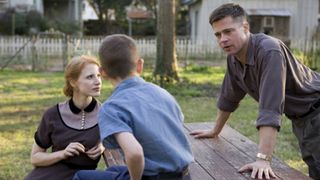
The Tree Of Life (2011)
The Film: Terrence Malick's hugely ambitious take on the human condition begins with a woman discovering that one of her sons has died, before launching back to the beginning of the universe, charting the dawn of creation before hurtling through erupting volcanoes, marauding dinosaurs and the birth of a child. Serves her right for asking, "why?"
The Reaction: Despite going on to win the Palme d'Or, the film was booed by large sections of the audience, the general feeling being that the film was far too obtuse for its own good. Even Robert De Niro's speech as Head of the jury seemed to suggest the film had won the prize off the back of its own sense of importance. "It had the size, the importance, the intention, whatever you want to call it, that seemed to fit the prize," he said, helpfully.
Did It Deserve The Hate? Resenting a filmmaker on the grounds of demonstrating too much ambition, seems a flimsy criticism at best. Malick's films aren't for everyone, but there's a majestically beautiful piece of work here for anyone with the patience to enjoy it.
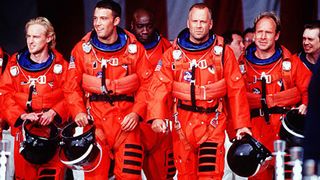
Armageddon (1998)
The Film: Michael Bay's end of the world explodeathon sees Bruce Willis and a group of similarly blue-collar joes blasted into space to blow up an asteroid on a collision course with Earth. Not exactly your typical Cannes fare, but it takes all sorts…
The Reaction: The film wasn't aired in full at the festival, but it still took a battering when preview footage was met with laughter from an audience of critics. Cue a furious press conference appearance from Bruce Willis, who berated said critics for putting the boot into an "unfinished product". However, reviews of the finished article weren't much kinder, with Roger Ebert describing it as "the first 150-minute trailer."
Did It Deserve The Hate? It seems silly to judge a summer tentpole movie by the same measures you would an arthouse picture, but then again, if you will market something like Armageddon at Cannes, what do you expect?
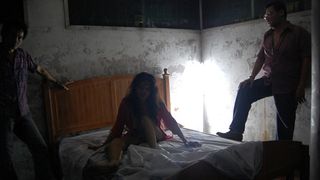
Kinatay (2009)
The Film: A Filipino crime drama from director Brillante Mendoza, in which a soon-to-be-married student of a Manila police academy unwittingly takes a job with a violent gang. After an eye-opening night of horrifying violence, he begins to consider his position…
The Reaction: Hailed across the board as the worst film of the festival, the film was slammed by more or less everybody who saw it. Quentin Tarantino was a notable exception, although even his praise for the film seemed like a wilful attempt to appear contrary. Roger Ebert was a particularly vocal detractor, saying, "here is a film that forces me to apologise to Vincent Gallo for calling The Brown Bunny the worst film in the history of the Cannes Film Festival."
Did It Deserve The Hate? Overlong by at least half an hour, this is an endurance test soaked in gore and sexual violence. Perhaps not as terrible as Ebert makes out, but a fairly unpleasant spectacle all the same.
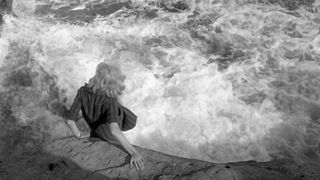
L'Avventura (1960)
The Film: Michelangelo Antonioni's masterpiece follows the story of a woman who disappears during a Mediterranean boating trip, and the growing attraction between her lover and her best friend during the subsequent search. A perfectly paced study of isolation, and a downbeat diversion from the "adventure" promised by the title.
The Reaction: The critics may have gone on to heap L'Avventura with praise, but during its first Cannes screening it was met by howls of derision from the festival audience, so much so that Antonioni fled the theatre in horror. Eventually, the jurors came to their senses, awarding it the Jury Prize after a second, well-received screening. Talk about a turnaround.
Did It Deserve The Hate? The sudden turnaround and subsequent praise would suggest not. Everyone seemed to feel a bit silly…
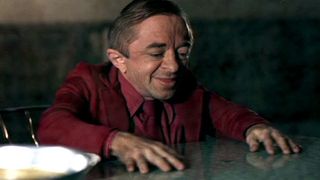
Twin Peaks: Fire Walk With Me (1992)
The Film: David Lynch attempts to translate his wildly popular TV mystery to the big screen in this prequel that makes little to no concessions to non-aficionados of the original series. Essential viewing for fans of the bleakly humorous and frequently disturbing show, and utterly baffling for everybody else.
The Reaction: The boos received by the film at Cannes were symptomatic of a wider critical backlash, with The New York Times leading the way. "Mr. Lynch’s taste for brain-dead grotesque has lost its novelty!" howled one reviewer, while another from the same paper went as far as to say, "it's not the worst movie ever made; it just seems to be." "Morbidly joyless," sneered USA Today , joining in the fun.
Did It Deserve The Hate? Absolutely not. Too many big-screen spin-offs attempt to kowtow to newbies, diluting whatever it was that made the original show great in the first place. Lynch deserves applause for going his own way with this essential companion piece.
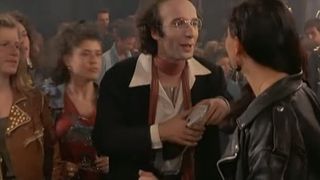
The Voice Of The Moon (1990)
The Film: Even the great Federico Fellini wasn't above the wrath of the Cannes audience, with his final film going down like a lead balloon at the festival in 1990. A meandering, nostalgic parable about a voice heard only by lunatics and reprobates, its a fantastical if slightly flabby denouement to a storied career in filmmaking.
The Reaction: A recent Time magazine retrospective recalled the reaction of one critic, whose outspoken opinion summed up the general feeling at a distinctly underwhelmed Cannes: "Ravishing. I've never been so bored in my life." Once again, there were boos galore during the film's official screening.
Does It Deserve The Hate? It's certainly not Fellini's finest work, and Roberto Benigni is something of an acquired taste, but booing it seems a bit strong. Then again, nobody gets a free pass at Cannes, not even the greats.
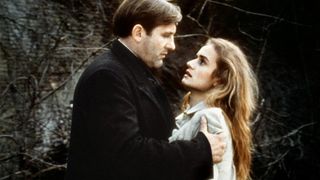
Under The Sun Of Satan (1987)
The Film: Maurice Pialat's adaptation of the novel by Georges Bernanos tells the story of Gerard Depardieu's devout priest who finds his moral compass in a bit of a spin when he becomes romantically involved with a murderer.
The Reaction: Winning the Palme d'Or on home turf should have been one big party for Pialat, but inexplicably, the triumph was met by boos and catcalls on the part of the French crowd. Not to be denied his moment, Pialat eschewed the chance to calm things down by gave the baying mob the finger. Fair enough!
Did It Deserve The Hate? To be honest, the antipathy towards this accomplished film has always been somewhat mysterious. Not that Pialat doesn't have his own theory. "The French don't like winning," he explains. "C'est tout."

Antichrist (2009)
The Film: Lars von Trier's nightmarish tale of a bereaved couple who head to a secluded woodland cabin in an attempt to reconnect with each other. Sadly, things don't quite turn out that way in this harrowing psychodrama, with a host of wince-inducing scenes of sexual violence chalking yet another notch in von Trier's bedpost of controversy.
The Reaction: Legend has it that four members of the audience fainted during the film's maiden screening, and the critics were split down the middle. On a positive note, Charlotte Gainsbourg won the festival's award for best actress. On the other hand, the ecumenical jury gave the film a special "anti-award", describing it as, "the most misogynist movie from the self-proclaimed biggest director in the world."
Did It Deserve The Hate? It's a thoroughly divisive film, a fact borne out by two Total Film reviewers giving it one star and four stars respectively! it's certainly not worthy of your hate, although whether you'll enjoy it or not is another matter…
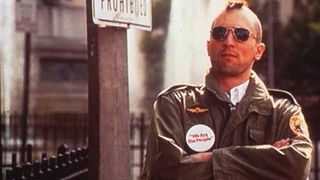
Taxi Driver (1976)
The Film: One of Martin Scorsese's angriest most unflinching films, Taxi Driver presents New York city as a Dante-esque cess pool, where the only way the supposed hero can carve out a happy ending is by blowing away a cabal of pimps, thugs and degenerates to rescue a twelve-year-old prostitute. Mean streets indeed…
The Reaction: Despite winning the Palme d'Or, the film got a rough ride throughout the festival. Tennessee Williams, the Jury President, was the first to get the knives out, raging that, "films should not take a voluptuous pleasure in spilling blood and in lingering on terrible cruelties as though one were at a Roman circus." He wasn't the only one to feel like that, with the jury's final decision roundly booed by the gathered festivalgoers.
Did It Deserve The Hate? There's no getting away from the violence, but describing it as gratuitous is way wide of the mark. A masterpiece, albeit a brutal one.
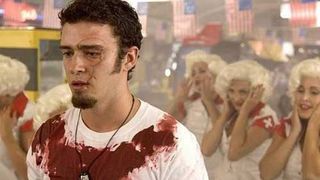
Southland Tales (2006)
The Film: Richard Kelly followed up the brain-taxing brilliance of Donnie Darko with a post-apocalyptic dramedy that makes his debut seem as complex as The Cat In The Hat . Part satire, part sci-fi, it gathers together a truly bizarre cast (The Rock and Justin Timberlake, together at last) to muddle their way through an incomprehensibly convoluted plot. Truly befuddling.
The Reaction: Having initially been tipped as a contender for the Palme d'Or, critics seemed both bemused and angered by the film's weighty running time and sprawling narrative. "The most disastrous since, yes, The Brown Bunny ," sighed Roger Ebert, while The Observer 's Jason Solomons was moved to question whether Kelly "had ever met a human being". Ouch.
Did It Deserve The Hate? Probably. Kelly described it as a, "tapestry of ideas all related to some of the biggest issues that I think we're facing right now." We'd describe it as a mess.

Marie Antoinette (2006)
The Film: Sofia Coppola's first directorial outing after the success of Lost In Translation was this glossy, Kirsten Dunst-starring take on the Queen of Cake. Stylised, crammed with American accents and happy to play fast and loose with historical accuracy, it plays like Clueless dolled up in period gear. No prizes for guessing how that went down with a room full of French film critics…
The Reaction: They booed it of course! Critics felt as though an important period in the nation's history had been tampered with and trivialised by an outsider, and no amount of spunky soundtrack choices could convince them otherwise.
Did It Deserve The Hate? We'd suggest the boo boys were taking it all a mite too seriously. "It is not a lesson of history," said Coppola by way of explanation. "It is an interpretation carried by my desire for covering the subject differently."
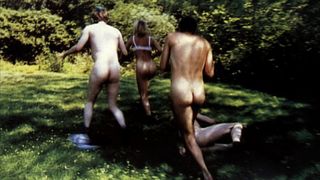
The Idiots (1998)
The Film: Lars Von Trier's divisive piece of Dogme filmmaking remains one of his most provocative pieces of work, containing as it does the central premise of a group of middle-class people pretending to be mentally handicapped for a bit of a laugh. Throw in some unsimulated sex-scenes and you've got guaranteed controversy bait. Not like Lars, is it?
The Reaction: The presentation of disability (or rather, the presentation of people mocking disability) was hugely controversial, and prompted a rash of scathing reactions from critics and audience members alike. Mark Kermode was famously ejected from the film's official screening , having begun shouting, "il est merde, il est merde" midway through proceedings. Presumably, what he meant to say was,"c'est de la merde," but you get the general idea…
Did It Deserve The Hate? It depends on whether you buy the justification of the film as a comment on the bourgeoisie, or whether you think it's simply shocking for the sake of it, causing offence to a vulnerable section of society in the process.
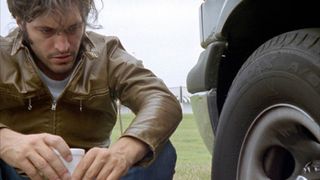
The Brown Bunny (2003)
The Film: Vincent Gallo's follow-up to the excellent Buffalo '66 is shrouded in notoriety thanks to an unsimulated sex scene between the director / leading man and co-star Chloe Sevigny. However, controversy aside, there's very little to get worked up about here, as Gallo's shapeless road movie strives for the loosely-structured, mood-driven aesthetic of the '60s and '70s, but ends up with very little to say for itself. A frustrating exercise in self-conscious detachment, with a bit of sex thrown in at the end.
The Reaction: The film came in for a critical mauling after being entered in competition, as opposed to one of the festival's lower-profile strands. Boos rang out in the auditorium, and Roger Ebert famously described the film as "the worst film in the history of Cannes." Gallo responded maturely, branding Ebert, "a fat pig with the physique of a slave trader." Now now, boys…
Did It Deserve The Hate? The controversy was a bit of a storm in a teacup, and even Ebert eventually reappraised his view after seeing an abbreviated re-cut version. No classic then, but not as bad as all that.

George was once GamesRadar's resident movie news person, based out of London. He understands that all men must die, but he'd rather not think about it. But now he's working at Stylist Magazine.
